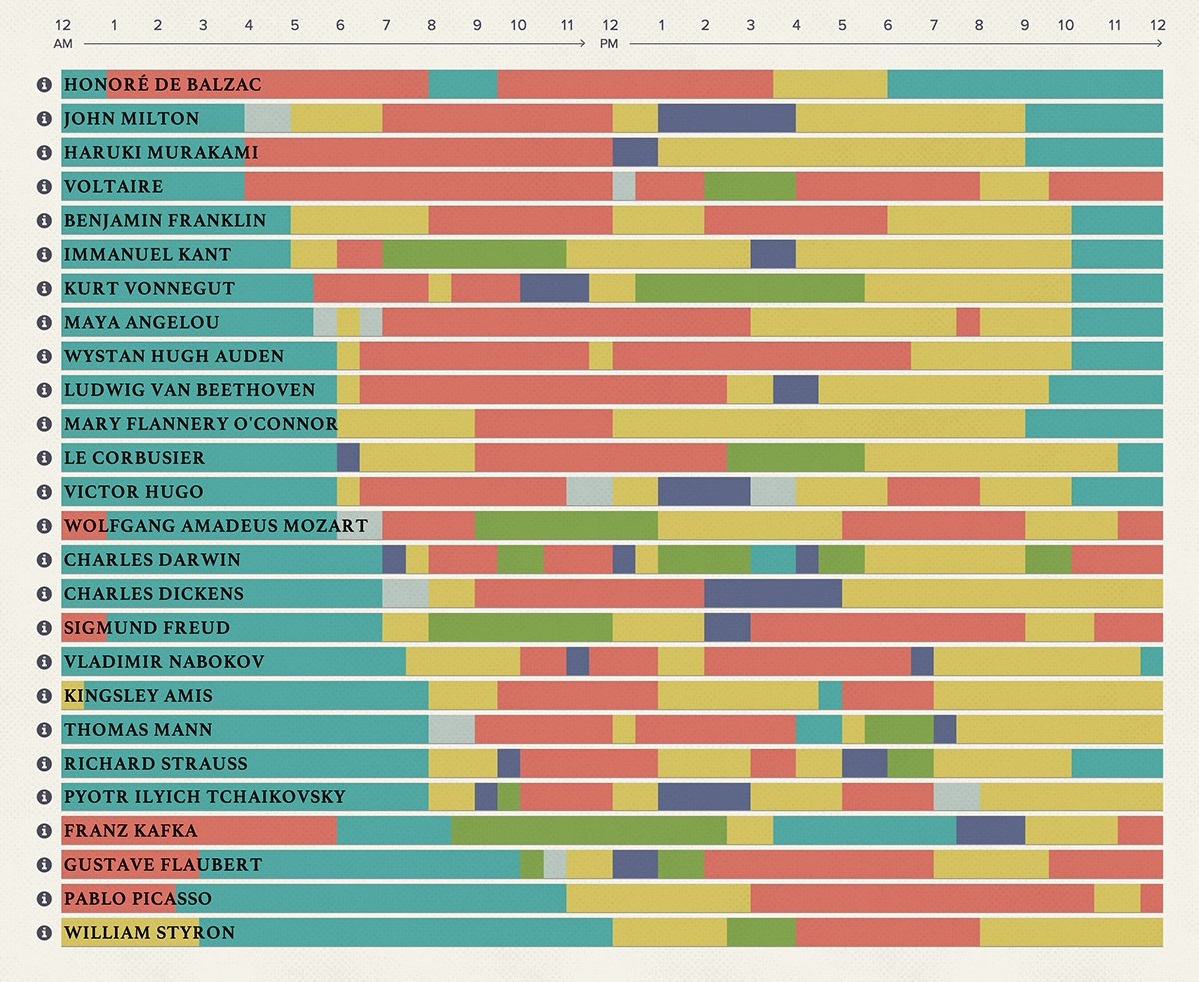If you spend some time reading the internet, you will find this word crop up again and again: ‘motivation’. How to feel motivated, how to motivate yourself, how do people motivate themselves and so on.
These aren’t unreasonable things to ask. The essential question being asked here is how does one go from a particular life situation to another? Some life changes or additions are required, no?
Of course the most straight-forward way to make life choices is to educate yourself. Though some will still link this with motivation.
The problem with motivation though, is that it shifts responsibility for these changes to something other than the self. Motivation is something bestowed upon you in some moment, by something you read or watch or listen to. It’s what given by some other substance or outside circumstance.
It’s possible to self-motivate, sure, but is that not terribly exhausting? To consistently have to find the reasons or causes for action?
If there is one thing that all successful people share it is habit. Habit is similar to motivation in that it propels one to work, but whereas motivation can be fleeting, habit is inherently consistent. A habit is a thing you work though every day until you don’t even really have to think about it anymore. Change as a person comes from consistency; and motivation, while occasionally useful, isn’t a real tool for change. Habits are.
But how to build a habit? And what sort of habits should one make use of?
How to: Start a New Habit
There are three factors that instil and maintain a habit, good or bad:
· Reminder
· Routine
· Reward
Or to put it another way, there will be cue that initiates the habit, the habit itself and then the reward you get from doing it.
So for example, if you have a habit of washing your face every day, the reminder may be that you always wash it after you brush your teeth. The reward then becomes that you get to feel clean. Or if you have a bad habit, say biting your nails, the reminder may be a realisation or worry that your nails are too long, or some other feeling of nerves or worry. The reward is then the relief that comes with having clipped nails, or perhaps the familiar feeling of safety associated with the act.
The critical part of any habit is the reminder. It’s tough to keep track of everything there is to remember as it is, so when trying to add something to your life, you shouldn’t rely on yourself to remember every time.
The best way to create a reminder is to include it as part of your pre-existing behaviour. For example, if you want to read more often, keep a book beside your bed and when you get into bed, you will see it and be reminded to pick it up and read. The reward could be the satisfaction of reading, especially finishing reading something or maybe a new viewpoint, or better vocabulary.
This means, then, that the reminder you pick should be a good one. So make a list of the things you do every day, this will likely consist of stuff like: showering; getting dressed; brushing teeth; having breakfast; going to the toilet etc.
Then make a list of things that will happen to you every day, such as: getting a notification on your phone; getting stuck in traffic; finishing listening to a song; having the sun set and so forth.
This way you will have a long list of reminders for things. If your aim is to exercise more, you can either start big and make your aim to go to the gym every morning after you brush your teeth. Or if starting small, you can do push-ups every time you get a notification.
Choosing the Right Habit
Life goals are not the same as habits. It’s easy to get excited and decide that you want to make massive changes to your life. We want to earn more, do more and be more immediately. But the people that change their life entirely in a space of a few months are rare and even rarer are those that do so with lasting effect.
If you want to make lasting change to your life then, it’s best to start small and build from there. At first, performance doesn’t matter- doing it with regularity is the important thing.
How small is really up to you, but one of the main reasons people fail with a new venture is because they set the initial bar too high. So make your aim as small as you possibly can. If you can’t decide what your first step should be, ask yourself this question: ‘How can I make this new behaviour so easy to do that I can’t say no?’
The Reward
It’s all well and good reminding yourself of good behaviours, but if they don’t feel good or have some reward, they won’t be continued for too long in any case. The reward can be as simple as telling yourself congratulations, allowing yourself to appreciate the good work you did, or something more substantial, like a good meal.
More often though, the reward will be some longer term goal: more intelligence, better understanding, a new skill, a fitter body. So it can sometimes be worthwhile rewarding yourself in some small way to help build up the habit at first.
Habits Add Up to a Routine
Little by little, day-by-day, these small changes will add up to new behaviours that will more and more come to define who you are and what you do.
But what then would a successful daily routine look like?
The Daily Routines of Some of the World’s Most Successful People
One simple way to decide what the ‘right’ things that make up your day should be is to compare your own personal schedule to some of the great people of the past. What did these people do that made them such successes?
Ludwig van Beethoven, German pianist and composer:
· 6am, Wake up, breakfast
· 6:30am, Work on music
· 2pm, Lunch
· 3:30pm, Exercise for an hour
· 4:30pm Relaxation
· 9pm, Sleep
Benjamin Franklin, American polymath:
· 5am, Wake up, wash, pray, organise day, breakfast
· 8am, Work
· 12pm, Read, eat lunch
· 2pm, Work
· 6pm, Clean, have dinner, relax, spend time with friends, review day’s work
· 10pm, Sleep
Note: Franklin would also ask of himself each morning, ‘What good shall I do this day?’ and each evening, ‘What good have I done today?’
Charles Darwin, British scientist:
· 7am, Wake up, short walk
· 7:30am, Breakfast
· 8am, Work
· 9:30am, Read mail
· 10:30am, Work
· 12pm, Exercise (usually a walk)
· 12:30pm, Lunch
· 1pm, Read newspaper
· 2pm, Respond to letters
· 3pm, Nap
· 4pm, Walk
· 4:30pm, Work
· 5:30pm, Relax, read
· 7pm, Dinner
· 8pm, Spend time with family
· 9pm, Read for work
· 10pm, Lie in bed ‘solving problems’
· 12am, Sleep
Pablo Picasso, Spanish artist:
· 11am, Wake Up, eat, relax
· 3pm, Creative work until
· 10pm, Eat, relax
· 11:30pm, Continue creative work
· 3am, Sleep
Honoré de Balzac, French writer:
· 1am, Wake up, begin writing
· 8am, Nap
· 9:30am, Continue writing, fuelled by as many as 50 black coffees per day
· 4pm, Exercise
· 4:30pm, Bath then meet friends
· 6pm, Sleep
Sigmund Freud, Austrian doctor and psychologist:
· 7am, Wake up, breakfast, trim beard
· 8am, Treat patients
· 12pm, Break
· 1pm, Lunch
· 2pm, Walk around Vienna ‘at terrific speed’
· 3pm, Consultations and more patient treatment
· 9pm, Dinner, time with family
· 10:30pm, Reading, writing for journals
· 1am, Sleep
If you are more of a visual person, then here is a chart:

Blue: Sleep; Red: Creative Work; Green: Day Job/Admin; Yellow: Food/Leisure; Purple: Exercise; Grey: Other
Of course there are some things to note with this selection of successful people. For one, these routines are not particularly modern. Picasso is the most recent of these and he died in 1973. This means these people never had access to the internet, or mobile phones, or even TV in the ways that today we are consistently bombarded by information and our attention demanded.
Part of the reason for this is that while modern successful people will answer questions generally about how their day is structured, they rarely go into such detail about the structure of their day.
Perhaps this is partly because success in the modern world is less defined by a single focused work-ethic, but more the spinning of multiple plates at once. For example, Jeff Bezos and Elon Musk have recently answered questions about their routines and their answers are mostly made up of suggestions that no two days are the same. Even Dwayne ‘The Rock’ Johnson, who is more of a creative type, is quiet on the structure of his days, outside of his prodigious work ethic in the gym. Though, of course, it may also just be plain old secrecy.
Also of note is that a daily routine is highly dependent on the choice of career and personal tastes in general. Sleep is a big obvious one. The amount of sleep one needs is very dependent on personality type, as is when one goes to bed and when one wakes up. Above, Balzac stands out in his irregularity, sleeping through the evening and part of the day, and mostly working through the night.
But otherwise, there will always be differences depending if your goals are artistic, business-focused, political, or whatever your preference is.
Nevertheless, there are some similarities that we can notice just in these few daily routines. For one, they have a routine. These great people generally went to bed around the same time each day and woke up around the same time each day. They made time for meals and exercise (mostly) each day and worked long, committed hours.
A lot of them made time for personal grooming and family and kept some relaxation time too. A lot of these ideas will remain the same despite changing times.
What you should also bear in mind when trying to craft your own daily habits is that they should appropriate for you. These are habits of people in success (and later in age) and while undoubtedly part of their success is a result from having a strong work ethic and daily routine, you shouldn’t feel the need to erase a lot of what you already have in your life to make space for other things. It’s more of a development of pre-existing habits you may have.
Certainly, we all have habits that we could cut out of our life, but changing your life is more of a process than an immediate action. So certainly make more time for work, have set sleep times, exercise every day, shower and groom each day and put aside some time for family and for relaxation too. But also keep time for friends, to explore, time for the internet, time for entertainment and all of the other habits that fill modern life. The important thing is to not let these things take time out from the actually important stuff that has to be done.
The Daily Routine Breakdown
So as we’ve seen, the daily habits you choose are entirely down to you and your preferences. With that said, here is an example of a daily routine for someone at university or college (or someone preparing for such). But of course, if you feel the need to swap some of these things around or shift the times so your sleep is more appropriate, than by all means do.
An Example of a College Student’s Daily Routine:
· 7:30am, Wake up, shower
· 8am, Breakfast
· 9am, Study
· 11:30am, Work creatively
· 12:30pm, Lunch
· 1pm, Study
· 2:30pm, Work
· 5:30pm, Gym/Exercise
· 7pm, Dinner
· 8pm, Spend time with family/friends
· 9pm, Relax
· 10pm, Sleep
With the three factors in mind for building a new habit: reminder, routine and reward, a schedule such as this can be steadily built.
For example, you can build a habit of exercise by firstly promising yourself to do 10 push-ups, then the following week 20, then 30 and so on. If you continue in this manner this small habit will come to define who you are.
This is not an easy or fast process. It requires dedication and work each day. But after a few weeks, then months, you will find your life will improve steadily and you will become the person you always dreamed you could be. You just have to stick with it.










